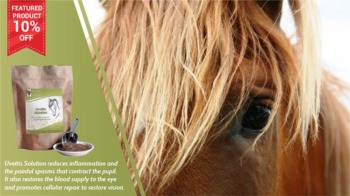
Why the ESA makes sense
Most hoof care issues do not originate in the hoof. If you have the education and experience to be able to assess a horse, help determine where the problem originates and recommend the appropriate professional (chiropractic, saddle fit, dental, etc.) to address the issue, not only will your job with the feet be much easier, but you will gain the respect and trust of your community including other equine professionals. If you fail to recognize mitigating factors that are adversely affecting the hooves, your trimming skills will be called into question when the feet don’t improve. The ESA gives you the education needed to properly evaluate and address complex issues in the field, and is the most comprehensive natural hoof care certification program offered anywhere.
..... Simply learning to trim is not enough.
The purpose of the academy is to educate students in all key aspects of the care and custody of domesticated equines based on study of the life way of the wild horse. A university format includes comprehensive studies on all required coursework, practical instruction, rigorous testing, and practical exams. Students completing the two year program are certified as ESA Hoof Care Practitioners.
The ESA looks to the life way of the wild horse as the model for equine health and soundness because equines, or any creatures that are kept in a manner that is consistent with their nature will fare far better in a domestic environment than those that are kept in ways alien to their physiology.
The freedom of individuals to inquire, study, evaluate and gain new understanding and maturity is the fundamental basis for learning at the Equine Sciences Academy. You will encounter students and instructors from diverse backgrounds with different opinions and philosophies. This diversity is important in exploring new ideas, honing critical thinking skills, and learning to think “outside the box”.
Our goal is to help students to learn to think critically as they evaluate and distill information, not to teach any one viewpoint or source. We do not believe that any one person or organization is "the" source or has all the answers. We believe that knowledge is a dynamic collective work - one we should all contribute to, draw from and share. Nature is about wondrous diversity and while there are some elements held in common, each horse is unique and must be approached with that held firmly in mind. Formulas for care or treatment do not ultimately serve the best interests of the horse. It is important to approach each equine as an individual, to assess body and mind to determine what effects the forces of life have had on that individual, and provide appropriate care based on that unique assessment at that particular time.
The Academy also teaches that formulas for care or treatment do not ultimately serve the best interests of the horse. It is important to approach each equine as an individual, to assess body and mind to determine what effects the forces of life have had on that individual, and provide appropriate care based on that unique assessment at that particular time. In order to accomplish this, the practitioner must have a solid fundamental understanding of all the key factors influencing and affecting the horse both mentally and physically as the practice of focusing on one aspect of a horse's body, environment, habits etc. without due consideration of the other possible mitigating factors in his life is inherently flawed. The Academy’s comprehensive curriculum provides this all important overview and perspective.









